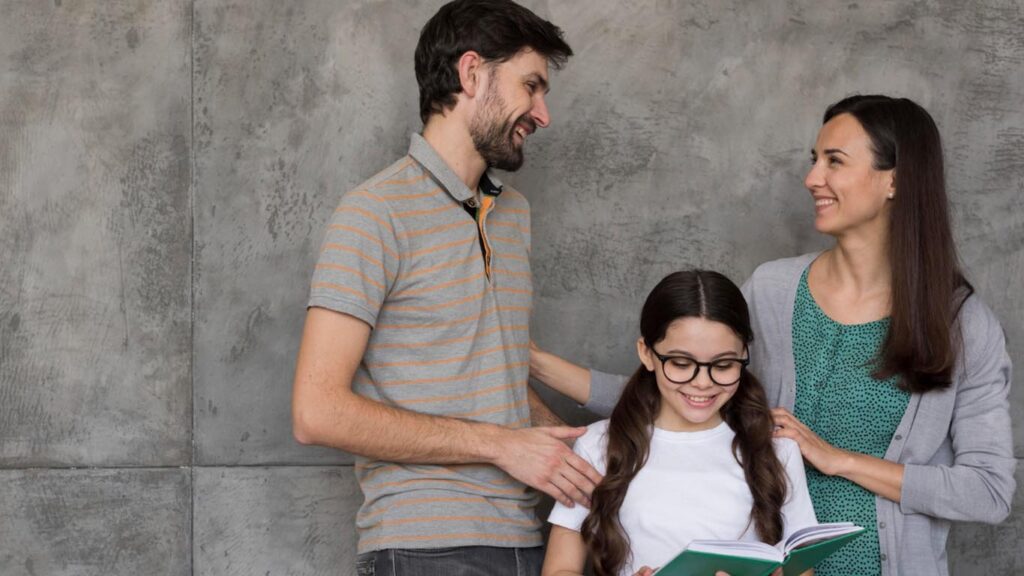The concept of family has evolved significantly over the years. While traditions still hold an essential place in many households, modern parenthood presents new challenges and opportunities. Today’s parents must balance cultural values with shifting societal norms, technological advancements, and changing gender roles. This article explores how families can navigate this transformation while maintaining a strong foundation of love, respect, and connection.
1. The Evolution of Family Structures
Traditional family structures, often consisting of a two-parent household with clearly defined roles, have diversified. Today, families come in many forms, including single-parent families, blended families, same-sex parents, and multi-generational households.
- Extended Family Influence: In many cultures, extended family members—such as grandparents, aunts, and uncles—play an active role in raising children, preserving traditions while supporting modern parenting approaches.
- Co-Parenting and Shared Responsibilities: More couples are embracing equal parenting roles, with both parents contributing to childcare and household tasks.
While the structure of families has changed, the core values of love, support, and connection remain constant.
2. Parenting in the Digital Age
Technology has transformed how families communicate, work, and spend time together. While it offers many benefits, it also presents challenges.
- Balancing Screen Time: Children today grow up with smartphones, tablets, and social media. Parents must set healthy boundaries to encourage offline interactions and outdoor activities.
- Maintaining Family Connections: Video calls, instant messaging, and social media help families stay connected, especially in long-distance relationships or multi-generational households.
- Protecting Privacy and Safety: Modern parents must teach children about online safety, responsible digital behavior, and the importance of personal privacy.
3. Shifting Gender Roles in Parenting
Traditional gender roles in parenting are shifting, with more fathers becoming actively involved in childcare and household responsibilities. Women are also balancing careers and motherhood in ways that past generations didn’t experience.
- Dual-Income Families: In many households, both parents work, requiring better time management and teamwork to balance family life.
- Stay-at-Home Dads and Working Moms: More fathers are choosing to be stay-at-home parents, challenging traditional expectations and redefining the role of a caregiver.
- Encouraging Equality: Teaching children about shared responsibilities and respect for all roles in the family helps break stereotypes and prepares them for a balanced future.
4. Preserving Cultural and Family Traditions
As families embrace modern lifestyles, maintaining cultural traditions can be a challenge. However, traditions play a crucial role in shaping identity and values.
- Celebrating Traditions in a Modern Way: Families can blend old customs with new practices. For example, celebrating holidays with traditional foods while incorporating new customs can keep heritage alive.
- Passing Down Values Through Stories: Sharing family history, cultural stories, and moral lessons helps children understand their roots and values.
- Encouraging Multiculturalism: In diverse households, parents can introduce children to multiple traditions, languages, and beliefs to foster open-mindedness.
5. Work-Life Balance and Parenting
Modern parents often struggle to balance career demands with quality family time.
- Prioritizing Family Time: Scheduling dedicated family moments—such as meals together, weekend outings, or bedtime routines—strengthens bonds.
- Remote Work and Parenting: The rise of remote work allows parents to spend more time at home, but it also requires clear boundaries to separate work and family life.
- Parental Leave and Flexibility: More companies are offering parental leave and flexible work arrangements, allowing parents to be more present in their children’s lives.
6. Emotional Well-Being and Open Communication
Emotional health is a crucial aspect of modern parenting. Children today face new stressors, from academic pressure to social media influence.
- Encouraging Open Conversations: Creating a safe space for children to express their feelings fosters emotional resilience.
- Teaching Mindfulness and Stress Management: Simple practices like meditation, deep breathing, and journaling help children and parents manage stress.
- Seeking Professional Support: Therapy and counseling are becoming more accepted, helping families navigate challenges together.
Conclusion
The dynamics of family life continue to evolve, blending tradition with modern values. By embracing flexibility, communication, and shared responsibilities, parents can create a nurturing environment that honors the past while preparing children for the future. The key to modern parenthood is balance—respecting traditions while adapting to the demands of contemporary life.
Share this content:



